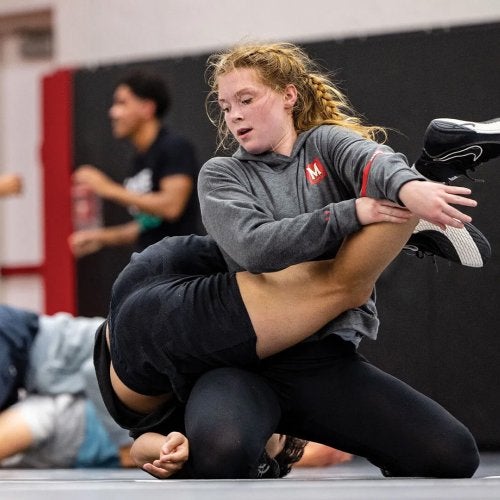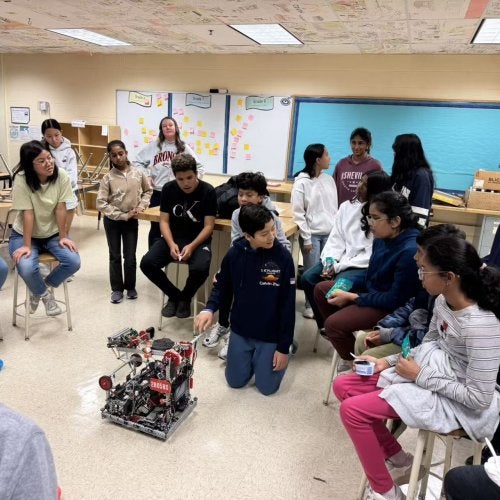
EdTerps faculty and students share their thoughts on how education can transform lives and communities for the better.
“When it is well designed and well delivered, education is a doorway into a world of possibilities for individuals from all walks of life, diverse backgrounds and all corners of the globe. Effective education expands the mind, embraces differences in experiences and perceptions, and works toward the betterment of all members of the global community.”
–Patricia A. Alexander Ph.D. ’81, Distinguished University Professor
“Education has the power to shape future generations into strong, positive, powerful members of society. People with a good education are able to become leaders in our communities, help others and succeed in their endeavors.”
–Alyssa Leventhal ’24, special education and general education certification major, human development minor
“Education is the bedrock of democracy. Without it, people would not have the tools to effectively evaluate and question what is going on in society.”
–Laura Mahalingappa, associate professor
“Education reveals the ways in which we value humanity, and it is the way we humanize each other.”
–William Ming Liu M.A. ’95, Ph.D. ’00, professor of counseling psychology and chair of the Department of Counseling, Higher Education and Special Education
“Education empowers individuals to rewrite the trajectories of their lives and discover their true potential and values, irrespective of their background, even if rooted in adversity. I wouldn’t have been able to become who I am without all the education I received. It is indeed life changing.”
–Yi Feng, Ph.D. candidate, Quantitative Methodology: Measurement and Statistics
“Education sets the foundation for consciousness raising in society. If done well, it prepares individuals to be open to lifelong learning and emotional development. These factors help to cultivate a world that understands the investment in education as foundational to well-being.”
–Sharon Fries-Britt ’81, Ph.D. ’94, Distinguished University Professor
“Education is the force that allows us to engage with the world when exploring, navigating, validating, appreciating, honoring, expanding or questioning social perspectives, products and practices.”
–Alejandro Pérez Belda, assistant clinical professor
“Education research has the potential to touch many people. Everyone experiences learning or education in some way, whether it be home-schooling, public schools or private schools. Research related to children at young ages sets them up for a good foundation, while research that highlights teaching habits of college professors can impact the lives of adults who are on their career paths. Everything learned through education research can be used to better the lives of others.”
–Marieh Arnett, second-year master’s student, Quantitative Methodology: Measurement and Statistics
“Education is not a destination but a journey, a commitment to a continuous process that brings about change in others through change in ourselves. By being lifelong learners, not just within our own disciplines but regarding the ever-changing world around us, educators synergize our collective, evolving expertise to meet the dynamic needs of our fellow humanity.”
–Gregory R. Hancock, professor, Distinguished Scholar-Teacher, director of the Quantitative Methodology: Measurement and Statistics program


